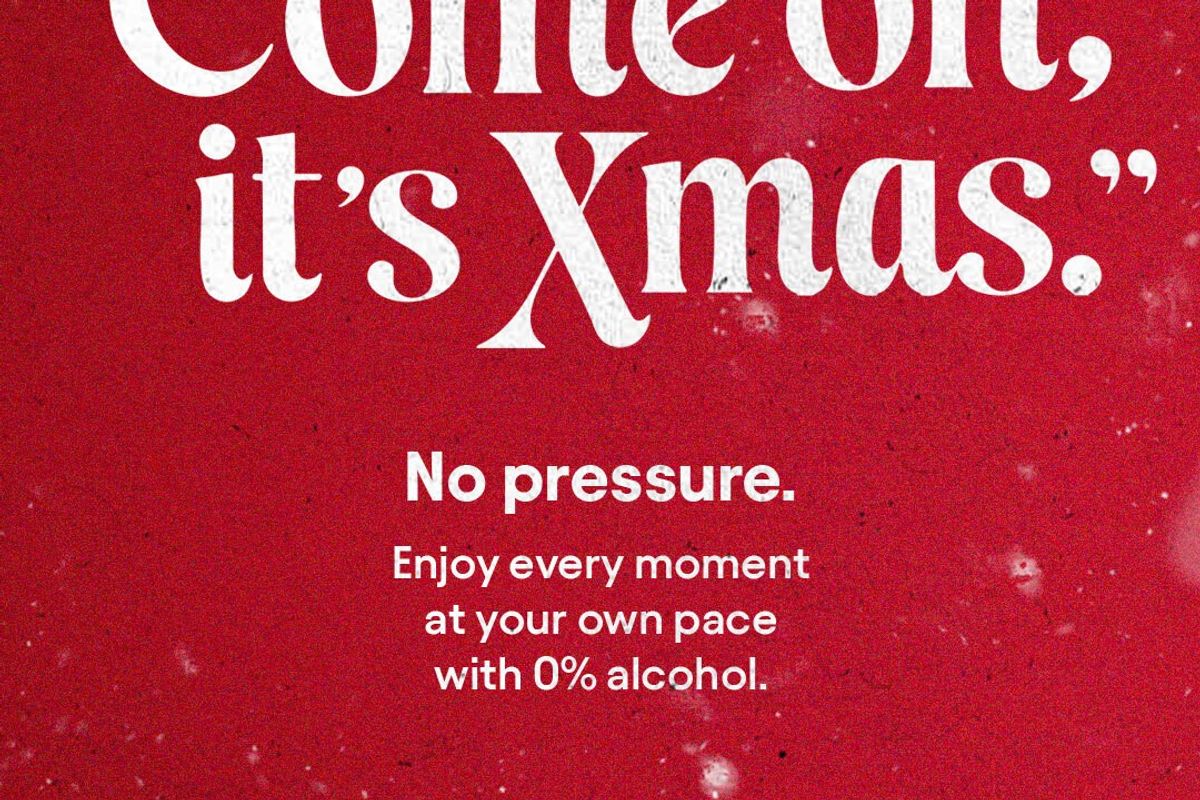New research from Budweiser Brewing Group UK&I (BBG) has revealed a significant shift in holiday drinking habits, with nearly half of Gen Z opting for a ‘Dry Christmas’.
The survey of 2,000 adults who celebrate Christmas and drink alcohol revealed that 34 per cent of Generation Z feel more pressure to drink alcohol during this period compared to previous years. However, the younger generation appears to be resisting the pressure, with a significant 78 per cent of those born after 1996 planning to start Dry January early, as soon as they finish work for the festive season.
This trend among younger drinkers is largely driven by a desire for balanced lifestyles, financial mindfulness, and the empowerment of making personal choices. In comparison, only 17 per cent of Baby Boomers have ever considered not having a drink over Christmas in the past, with just six per cent planning to do so this year.
Despite the generational differences, the study found that 65 per cent of all drinkers cutting back this Christmas believe they can enjoy the festivities just as much without alcohol. Additionally, a quarter of respondents expressed a preference for moderating their drinking with no-and-low alcohol options at work Christmas parties, a figure that rises to 35 per cent among the youngest workers.
“Moderation is no longer limited to awareness months and days; it is now part of our everyday lives,” Brian Perkins, president of Budweiser Brewing Group UK&I, commented.
“Efforts to moderate in January have been brought forward into the festive period and throughout the rest of the year, as we see more people choosing no-and-low alcohol alternatives as their drink of choice. While pressure to drink alcohol may still exist, it is promising to see people resisting this, and celebrating moderation. What’s even more positive is that moderation isn’t impacting people’s enjoyment; in fact, these results reaffirm that we can and do still enjoy ourselves just as much."
The study also highlighted that four in 10 respondents believe the ‘Dry Christmas’ trend will gain popularity in the coming years. Although this is driven by 60 per cent of Gen Z compared to only 43 per cent of Gen X.
Nearly a third (30%) have noticed more people in their social circles opting to moderate or remove alcohol from their Christmas plans. Furthermore, 56 per cent believe that festive parties now offer more low-and-no-alcohol drinks than five years ago, and 55 per cent feel that the quality of these options has improved.
In fact, the research also found that 64 per cent of adults are keen to moderate their alcohol intake longer term, not just at Christmas.
Perkins added: “Christmas is a time for celebration, and enjoying a drink can be a part of that festive spirit. However, a strong proportion of people are now choosing to embrace the holidays and special occasions all year round with a focus on balance and moderation. To help people moderate, it is important they have options available to do so – that’s why we pride ourselves on having a strong no alcohol portfolio which is growing from strength to strength, including favourites such as Budweiser Zero, Corona Cero and Stella Artois Alcohol Free Lager.”


